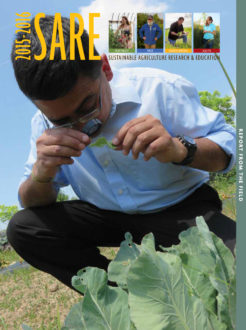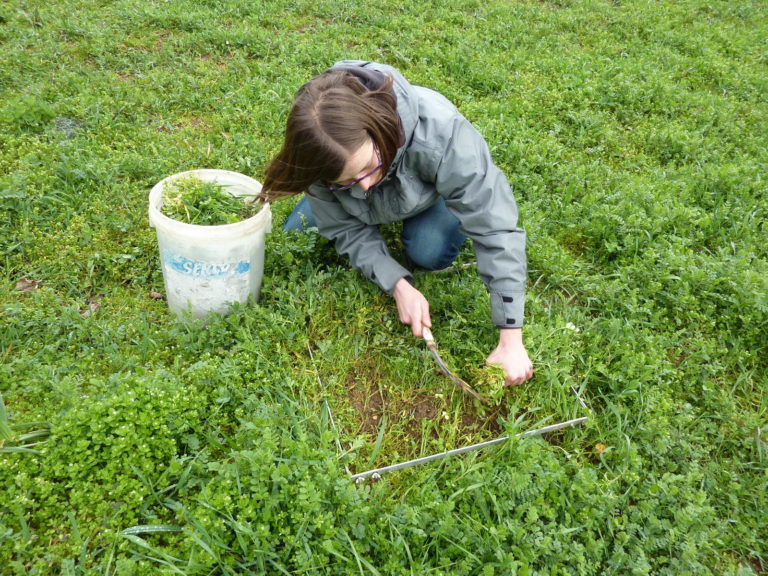[SARE: ADVANCING TECHNICAL SUPPORT TO ORGANIC FARMERS]
In 2009, the USDA Natural Resources Conservation Service (NRCS) was tasked with providing financial and technical assistance to help organic farmers implement conservation practices. Over the years, however, participation from organic farmers remained low due to lack of coordination among agencies, limited outreach and a dearth of technical materials that could address both conservation planning and organic certification standards.
That is changing now, thanks to a team from Oregon Tilth, the National Center for Appropriate Technology (NCAT) and the Northwest Center for Alternatives to Pesticides that has partnered with NRCS to better prepare field personnel to work with organic farmers. The project, which includes trainings and development of new training manuals, has been funded by two SARE grants. “NRCS has a lot of technical guides and conservation practice specifications, but these [new implementation guides] are the first that align with organic regulations,” says Rex Dufour, director of NCAT’s Western Regional Office and a project collaborator.
Designed to provide guidance on conservation practices that will make growers eligible for NRCS Environmental Quality Incentives Program Organic Initiative (EQIP-OI) funding, the implementation guides also contain specific practice information that organic growers must follow to meet USDA certification standards. Focusing on conservation areas that protect soil and water, such as buffers, alternative pest management, cover crops and nutrient management, each guide also provides relevant portions of the National Organic Program (NOP) regulations, which are generally more stringent than those required by conservation plans.
The guides are also designed to fill in technical gaps for NRCS personnel and other planners who may not be accustomed to writing conservation plans for organic systems. For example, as Dufour explains, many NRCS personnel are not accustomed to working with growers who do not use chemical fertilizer, and estimating nutrient availability from multiple alternative sources such as manure and cover crops is difficult. To address this complexity, the Implementation Guide for Nutrient Management Plans provides tables of crop nutrient requirements, detailed steps on calculating nutrient credits from soil, cover crops and manure, and an extensive table of estimated nutrients from organic-approved sources.
The Western state implementation guides were so well received by NRCS that state offices in Pennsylvania, Kentucky and New England also requested regionally adapted versions.
Pre- and post-training surveys also bear out the success of the training sessions held in Oregon, Idaho, California and Nevada. In one post-training evaluation, attendees reported that knowledge and skills increased in every category after each session.
Equally significant, “[The trainings] reduced anxiety and helped planners feel more prepared to work with organic farmers,” says NRCS Oregon State Agronomist Denise Troxell, who collaborated on the guides and helped plan the trainings.
Building on the success of this collaboration, NRCS, working with the NOP and Oregon Tilth, recently unveiled its new Conservation Activity Plan, a program that will allow conservation planners to help growers transitioning to organic develop an Organic System Plan as part of their conservation plan. “Any chance we get to match up conservation and organic planning, it’s a good thing,” Troxell says.
For more information, see the project reports for grants EW12-031 or EW15-020.
Free Resources!
Grantee product: The NRCS guides on conservation and organic farming systems developed through this project are available online.
SARE book: Organic Transition: A Business Planner for Farmers, Ranchers and Food Entrepreneurs (download for free or purchase hard copies).
SARE Resources and Learning: Conduct topical searches of hundreds of educational products, including organic agriculture.

